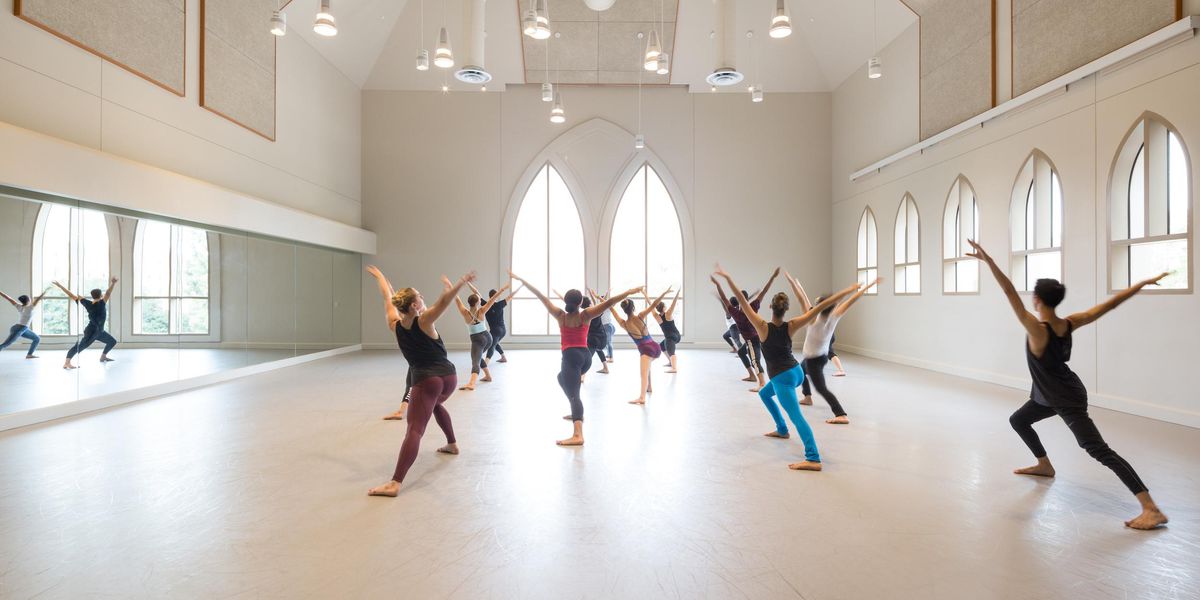On Broadway: The Chase Brock Summer
His current projects include the street-dance numbers in Venice, the musical.
Angela Polk performing in Venice. Photo: Joan Marcus, Courtesy Venice
Everyone knows that dance careers can be short. But Chase Brock’s was shorter than most: He retired after one Broadway show at the shockingly unripe age of 18. “Though I loved it, it confirmed my suspicion that what I really wanted to do was make dance and make theater,” he says.
So now, just 30, he can boast an astonishing 12 years of diverse choreography projects, from cruise ships to the mega-musical Spider-Man: Turn Off the Dark. He’s choreographed industrial shows, a video game, and concert dance for his company, the Chase Brock Experience. And you could justifiably call this season the Chase Brock Summer: In June, his inventive work infused the Public Theater’s new musical Venice with a streetwise movement vocabulary all its own. In July, Brock took on the 1937 Marc Blitzstein musical The Cradle Will Rock for the new Encores! Off-Center series at City Center (see June “On Broadway”). And early next month, he’ll be choreographing for a cast of 200, when the Public presents a special musical adaptation of The Tempest featuring both professional actors and community members.
Brock, who started ballet at 6 in North Carolina, says “My amazing family drove me around from state to state and city to city every day.” Summers he was mentored by Ann Reinking and Gregory Hines at the Broadway Theater Project. And when he got a gig in The Music Man at 16, he moved to New York.
His quick switch to choreography, he says, was in part inspired by reading an interview with Graciela Daniele: “She said she spent her whole life as a dancer looking into the mirror, and when she became a choreographer, she turned away from the mirror and saw the world for the first time.” But he was soon frustrated with the world he was seeing in “the kinds of things you do to cut your teeth,” like industrials. “I wanted to be doing projects where dance was essential.”
At first glance,Venice, written by director Eric Rosen and rapper Matt Sax, does not look like a project where dance is essential. A dystopian tale with some echoes of Othello, it’s a musical mash-up set in a totalitarian city-state where revolution is brewing and politics gets very personal indeed. “As soon as I heard the music, I loved it. When I read the script, the idea of a city where the people had been oppressed by a military regime—so many of our dance traditions have come out of that kind of oppression.”
When he first told his colleagues, “I think there’s tap,” he recalls, “everyone looked at me. ‘Tap?’ ” But rhythm tap is only one of the show’s vernacular dance styles. “Venice is set in the future,” he says. “You can’t research the future.” So Brock says he “fast-forwarded” from our globalized dance world “to a kind of ideal future where all of our cultures would be even more combined.” Characters borrow moves from street dance genres originating in France, Belgium, and Brazil, as well as the East and West Coasts. “What excited me was the idea of creating something that felt unfamiliar and strange, and would help to distinguish the physical world of Venice from any other show. It’s a testament to my collaborators and our producers that they were willing to follow me into those unexpected places.”
Sylviane Gold writes on theater for
The New York Times.




